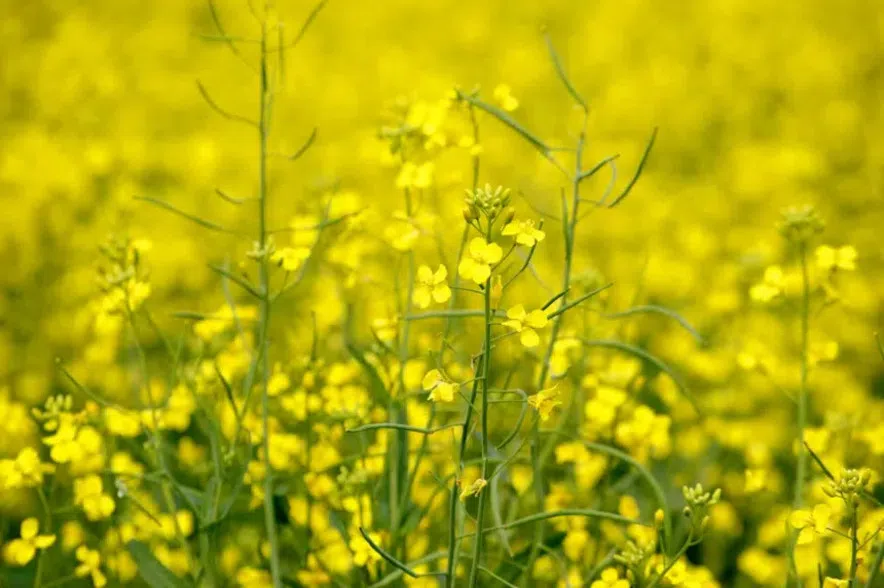Canola producers in Saskatchewan were hoping for more from the federal government announcement of tariff supports on Friday.
Prime Minister Mark Carney came out and announced a series of support programs for industries struggling with the effects of the U.S. and Chinese tariffs.
Read more:
- Moe looking to fix and expand trade with China in imminent trade trip
- Dry conditions push harvest ahead, with 23 per cent of crops in the bin
- Some tobacco settlement money to be used in Saskatchewan for cancer care, prevention: Minister
Ottawa had announced $370 million in new support for Canadian canola producers facing massive tariffs from China.
The federal government said Friday that a new biofuel production incentive is meant to address “immediate competitiveness challenges” after China hit Canadian canola with a 75.8 per cent tariff last month.
The measure was widely seen as a response to Canada’s 100 per cent tariff on Chinese electric vehicles.
For the canola industry, they include support for the biodiesel industry, money to expand export markets, and a temporary increase to the interest-free portion of the Advance Payment Program (APP) that producers can access, from $100,000 to $500,000.
Bill Prybylski, president of the Agricultural Producers Association of Saskatchewan (APAS), said he’s pleased the federal government has recognized that canola is valuable in the country and that the industry is hurting right now – but he said the announcements weren’t enough.
“This is positive steps in the right direction, but ultimately we need the tariffs to go away and we need to return to normal trading,” he said.
Short of getting rid of tariffs, he said he would have liked to see the same kind of immediate financial help without dollar limits that other industries have gotten.
“The agriculture sector is bigger than any of the other industries that are being affected by the tariffs, but yet we’ve gotten no indication of recognition of that, of what the plan is going forward and yeah, it’s very frustrating seeing the lack of response from the federal government in terms of support for agriculture,” Prybylski explained.
He said things like the export and biodiesel supports will help create more demand for canola in the future, but the short-term is the main concern right now.
Prybylski did some math, explaining that canola prices are about half what they were a couple of years ago, and while not all of that is due to tariffs, he said between $5-$6 a bushel is. For a producer with 2,000 acres of canola, that could end up being $500,000 that producers can’t realize because of tariffs.
For pea producers, who are also dealing with Chinese tariffs, they’re seeing prices at nearly a third of what they had been just a couple of years ago.
The increase to the interest-free portion of the APP could help producers in the short term, but Prybylski said producers don’t need more debt; they need fair prices for their canola.
“There’s going to be a lot of red ink on the farms and the measures today don’t necessarily address that,” he said.
Besides the increase to the APP, Prybylski noted there weren’t any measures to specifically help pea producers.
The provincial government
The Government of Saskatchewan said Friday it was pleased with the federal government’s support for canola producers.
But, in a statement, the province said the government’s focus was still on getting rid of the Chinese tariffs on canola — pointing to the Premier’s trade mission to China.
It said it’s also pleased with the pausing of the EV sales mandate, saying it was “always completely unrealistic.”
— with files from The Canadian Press











